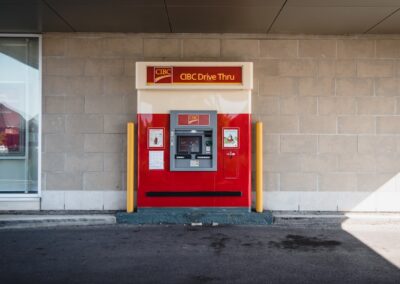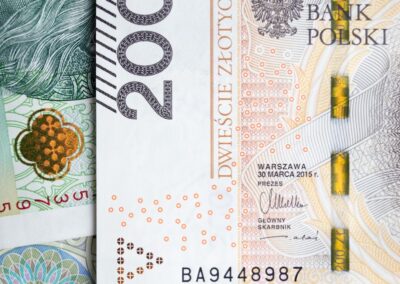The Impact of Fintech on Transaction Costs
Revolutionizing Financial Services with Fintech
The use of fintech solutions can reduce transaction costs and fees, making financial services more affordable for consumers and businesses. In the rapidly evolving financial landscapes of Saudi Arabia and the UAE, fintech is driving a revolution that enhances efficiency and inclusivity in financial services. By leveraging advanced technologies such as blockchain, artificial intelligence, and machine learning, fintech companies are providing innovative solutions that streamline operations, lower costs, and increase accessibility.
Fintech platforms achieve cost reduction through various means. One significant method is the elimination of intermediaries. Traditional financial transactions often involve multiple intermediaries, each adding their own fees and delays. Fintech platforms streamline these processes by enabling direct transactions between parties, which significantly reduces costs and improves transaction speeds. For instance, peer-to-peer payment systems and blockchain-based transactions eliminate the need for traditional banks, thereby reducing associated fees.
Saudi Arabia is at the forefront of adopting fintech innovations to enhance its financial sector. The Saudi Arabian Monetary Authority (SAMA) has launched several initiatives to promote the use of fintech, aiming to create a more inclusive financial system. Similarly, the UAE’s focus on becoming a global fintech hub has led to significant investments in fintech startups and innovations. Both countries are leveraging fintech to reduce transaction costs, thereby making financial services more affordable and accessible to a broader population.
Blockchain Technology: A Game Changer in Cost Reduction
Blockchain technology plays a crucial role in reducing transaction costs in the financial sector. By providing a decentralized and immutable ledger, blockchain eliminates the need for third-party verification, which is often costly and time-consuming. Transactions on a blockchain are verified by a network of nodes, ensuring security and transparency without the need for traditional intermediaries.
In Dubai, blockchain is being integrated into various aspects of the financial system to enhance efficiency and reduce costs. The Dubai Blockchain Strategy aims to make Dubai the first city to be fully powered by blockchain by 2020. This initiative is expected to significantly reduce transaction costs and improve the overall efficiency of financial services. Saudi Arabia is also exploring the potential of blockchain through the Saudi Blockchain Initiative, which promotes the adoption of blockchain technology to enhance transparency and reduce costs in the financial sector.
Blockchain’s ability to streamline transactions and reduce fees is particularly beneficial for cross-border payments, which are traditionally associated with high costs and lengthy processing times. By enabling direct and secure transactions, blockchain reduces the need for multiple intermediaries, thereby lowering costs and enhancing the speed of cross-border payments. This innovation is especially valuable in the UAE and Saudi Arabia, where international trade and remittances are significant components of the economy.
AI and Machine Learning: Optimizing Financial Services
Artificial intelligence (AI) and machine learning are transforming the financial sector by optimizing processes and reducing operational costs. These technologies enable fintech companies to automate various aspects of financial services, such as customer support, fraud detection, and risk assessment. By automating these processes, fintech companies can reduce the need for human intervention, thereby lowering operational costs and improving efficiency.
In Riyadh, fintech companies are leveraging AI to enhance their financial services. For example, AI-powered chatbots provide customer support, handling routine inquiries and transactions without the need for human agents. This automation reduces costs and improves the customer experience by providing instant and accurate responses. Similarly, AI algorithms are used to detect fraudulent activities in real-time, reducing the risk of fraud and associated costs.
The UAE is also at the forefront of adopting AI and machine learning in the financial sector. Fintech companies in Dubai are using these technologies to develop sophisticated financial products and services that cater to the diverse needs of their customers. By leveraging AI and machine learning, these companies can provide personalized financial advice, optimize investment strategies, and enhance risk management, all while reducing operational costs.
Enhancing Affordability and Accessibility of Financial Services
Mobile Banking and Digital Wallets
Mobile banking and digital wallets are revolutionizing the way consumers access and manage their finances. These fintech solutions provide a convenient and cost-effective alternative to traditional banking services, reducing transaction fees and making financial services more accessible to a broader population. Mobile banking apps allow users to perform various financial transactions, such as transferring funds, paying bills, and checking account balances, all from the convenience of their smartphones.
In the UAE, mobile banking adoption is rapidly increasing, driven by the high penetration of smartphones and the availability of advanced mobile banking apps. Banks in Dubai offer sophisticated mobile banking services that cater to the diverse needs of their customers, providing a seamless and secure banking experience. Similarly, Saudi Arabia is witnessing a surge in mobile banking adoption, with initiatives like the Saudi Vision 2030 promoting the use of digital financial services to enhance financial inclusion.
Digital wallets, such as Apple Pay and Google Wallet, further enhance the affordability and accessibility of financial services. By allowing users to store their payment information securely on their smartphones, digital wallets reduce the need for physical cash and cards, simplifying transactions and reducing associated costs. The widespread adoption of digital wallets in Saudi Arabia and the UAE is transforming the financial landscape, making financial services more convenient and affordable for consumers.
Peer-to-Peer Lending and Crowdfunding
Peer-to-peer (P2P) lending and crowdfunding platforms are providing alternative sources of funding for individuals and businesses, bypassing traditional banking systems and reducing associated costs. These platforms connect borrowers directly with investors, eliminating intermediaries and reducing transaction fees. P2P lending and crowdfunding offer more flexible and inclusive funding options, making financial services more affordable and accessible to a broader population.
In Dubai, P2P lending platforms are gaining popularity, providing small and medium-sized enterprises (SMEs) with the capital they need to grow and thrive. These platforms offer a more efficient and cost-effective alternative to traditional bank loans, reducing the financial burden on businesses. Saudi Arabia is also embracing P2P lending and crowdfunding, with regulatory frameworks being developed to support the growth of these fintech solutions.
Crowdfunding platforms enable individuals and businesses to raise funds for various projects and initiatives by tapping into a large pool of investors. By leveraging the power of the internet and social media, crowdfunding platforms reduce the costs associated with traditional fundraising methods and provide a more accessible and inclusive funding option. The adoption of P2P lending and crowdfunding in Saudi Arabia and the UAE is enhancing the affordability and accessibility of financial services, driving economic growth and innovation.
Conclusion
In conclusion, the influence of fintech solutions on reducing transaction costs and enhancing affordability is transforming the financial landscape in Saudi Arabia and the UAE. By leveraging advanced technologies such as blockchain, artificial intelligence, and mobile banking, fintech companies are providing innovative solutions that streamline financial services, lower costs, and increase accessibility. The adoption of fintech in these regions is driven by strategic initiatives and regulatory support, positioning Saudi Arabia and the UAE as leaders in the global fintech revolution. As fintech solutions continue to evolve, they will play an increasingly important role in shaping the future of finance, providing more affordable and accessible financial services to consumers and businesses alike.
—
#Fintech #TransactionCosts #FinancialServices #AffordableFinance #SaudiArabiaInnovation #UAETechnology #BusinessSuccess























